Demolition Contractors Grand Prairie
Best Structure Demolition in Grand Prairie
Receive 3 FREE Building Demolition quotes for your project today! Compare profiles, reviews, accreditations, portfolio, etc... and choose the best offer.
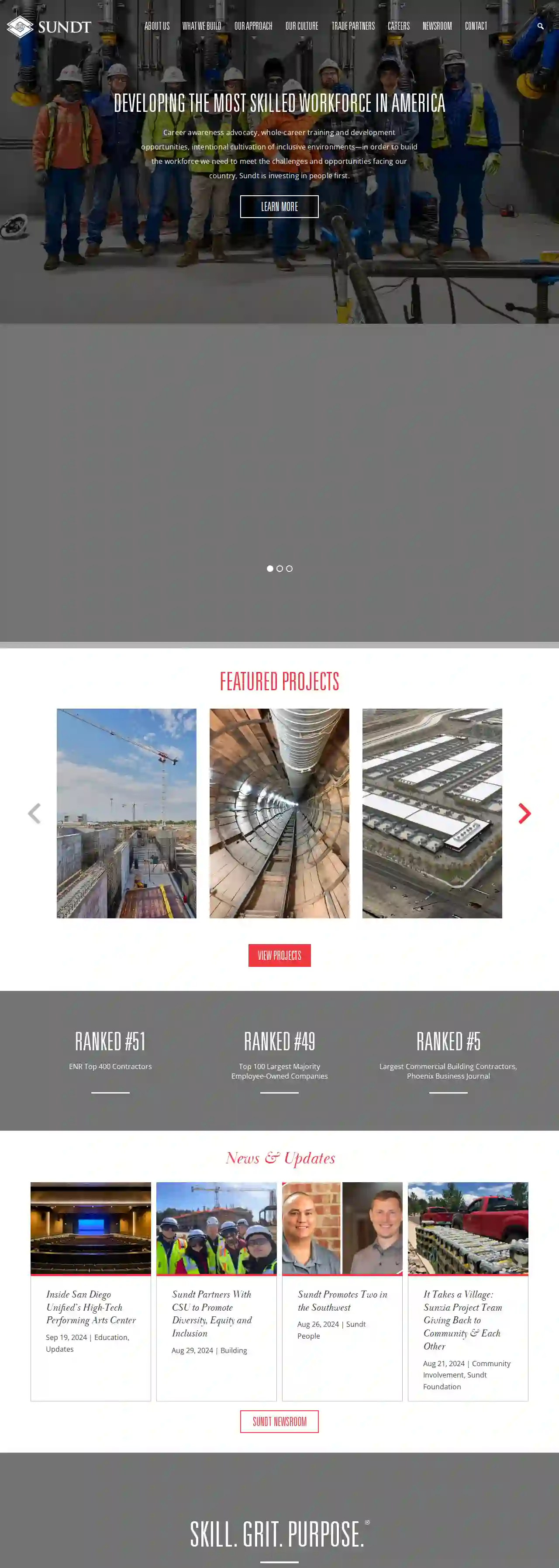
Sundt Construction
49 reviewsSan Antonio, USAbout Sundt Sundt is committed to being the most skilled builder in America, owned and led by the industry’s top construction professionals. Our diverse expertise serves clients across the United States. History Founded in 1890, Sundt has a storied history of landmark projects across the country. Our Team As a 100% employee-owned company, we are committed to collaboration and accountability: shared responsibility and shared success. Sundt Foundation The Sundt Foundation reflects our employee-owners’ passion for giving back to the communities where we live and work. Our Regions As one of America’s largest and most respected general contractors, we have a portfolio of projects and roots spanning coast to coast. Awards & Recognition Our accomplishments reflect our employee-owners’ efforts and the spirit of cooperation and partnership we share with our clients.
- Services
- Why Us?
- Gallery
Get Quote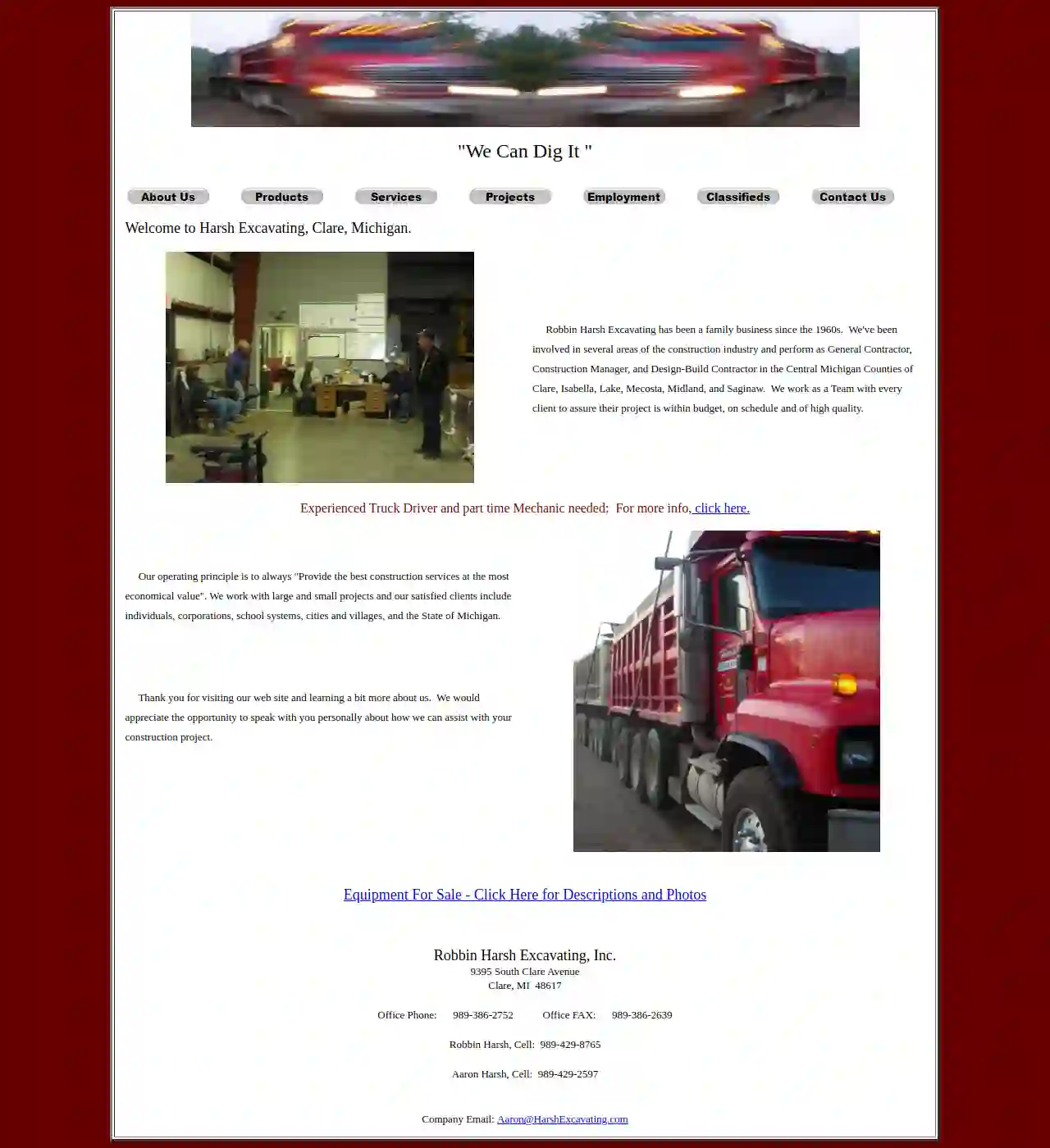
Robbin Harsh Excavating Inc
4.824 reviews9395 South Clare Avenue, Clare, 48617, USHarsh Excavating: Your Trusted Partner in Construction Harsh Excavating, a family-owned business with roots dating back to the 1960s, has a rich history of delivering exceptional construction services in Central Michigan. We've established ourselves as a reliable General Contractor, Construction Manager, and Design-Build Contractor, serving the counties of Clare, Isabella, Lake, Mecosta, Midland, and Saginaw. Our commitment to teamwork extends to every client, ensuring their projects are completed on time, within budget, and to the highest standards. We believe in open communication and collaboration, working closely with our clients to understand their vision and achieve their goals. We handle projects of all sizes, from small residential jobs to large-scale commercial endeavors. Our satisfied clientele includes individuals, corporations, school systems, municipalities, and even the State of Michigan. We take pride in our reputation for delivering quality construction services at the most economical value. We invite you to explore our website and learn more about our services and completed projects. We'd be delighted to discuss your construction needs and demonstrate how we can help bring your vision to life.
- Services
- Why Us?
- Our Team
- Gallery
Get Quote
JF Petroleum Group
1Corpus Christi, USFor over 75 years, we've dedicated ourselves to becoming the foremost supplier of fuel and fluid handling systems. Our extensive range of services and products enables our skilled team to manage projects from inception to completion, positioning us as your go-to destination for all fuel management requirements. We pride ourselves on being the national leader while keeping a strong local presence. We have 46 regional offices strategically located throughout our service areas, 7 modern distribution centers across the country, and certified technicians located to service all of our customer's needs in a timely fashion.
- Services
- Why Us?
- Testimonials
- Gallery
Get Quote
Straight Line Foundation Repair & Drainage, LLC
4.627 reviews8112 White Settlement Rd., Fort Worth, 76108, USStraight Line Foundation Repair: Your Trusted Partner for Lasting Solutions Straight Line Foundation Repair & Drainage in Dallas, Fort Worth & Abilene is dedicated to providing every client with a long-lasting solution for their foundation problems. We take pride in our work and guarantee that our foundation repairs will stand the test of time. If you're in the Fort Worth, Dallas, or Abilene, Texas area and need a reliable foundation repair specialist, look no further than Straight Line Foundation Repair & Drainage. We understand that a strong foundation is crucial for a strong home. That's why our team of experienced professionals has spent years restoring and repairing foundations throughout North Texas. We also specialize in commercial foundation repair, ensuring that your business has a solid base to thrive on. At Straight Line Foundation Repair & Drainage, we are fully licensed and insured, and we work closely with our clients from the initial assessment to the final repair. We provide a straightforward evaluation of your foundation and offer a detailed estimate for any necessary repairs. Our commitment to exceptional customer service sets us apart. We believe in transparency and honesty. We'll explain the cause of your foundation problems and provide you with the best possible solution. We're confident that you'll be satisfied with our work and our dedication to your peace of mind.
- Services
- Why Us?
- Testimonials
- Gallery
Get Quote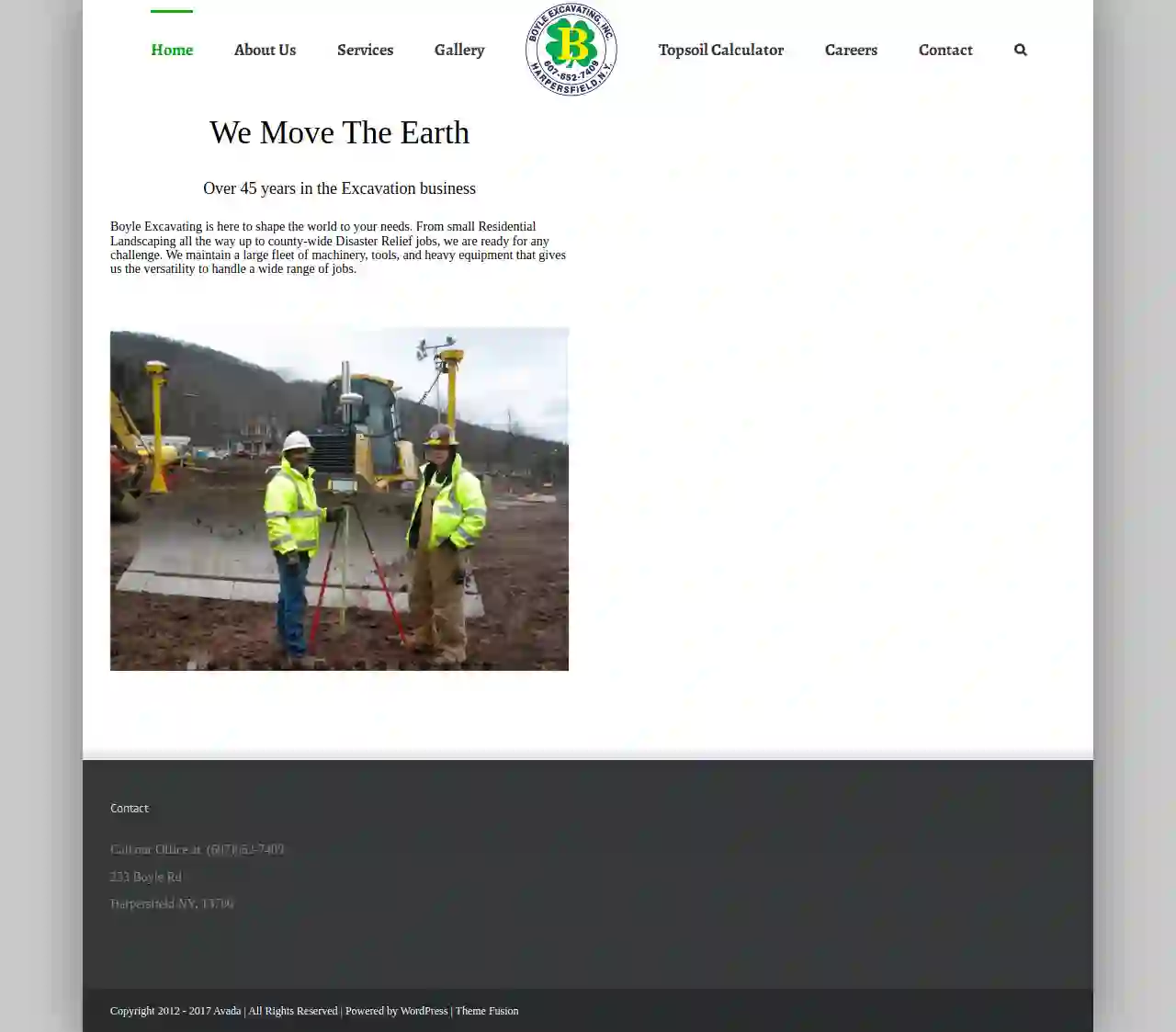
Boyle Excavating Inc
4.912 reviews233 Boyle Road, Harpersfield, 13786, USBoyle Excavating: Over 45 Years of Experience Boyle Excavating has been shaping the world to meet your needs for over 45 years. From small residential landscaping projects to large-scale county-wide disaster relief efforts, we're ready to tackle any challenge. Our extensive fleet of machinery, tools, and heavy equipment provides the versatility to handle a wide range of jobs. Our commitment to using the latest technology ensures our customers receive the best possible results. We believe in staying ahead of the curve, as technology is constantly evolving. We're passionate about our work and excited to see what each new day brings. We take pride in transforming dreams into reality, working closely with construction managers who recognize our dedication and ability to handle any task. Our team of dedicated and loyal employees is the backbone of our success, allowing us to deliver exceptional quality in every project.
- Services
- Why Us?
- Our Team
- Gallery
Get Quote
Franklin Excavation
11441 New Hwy 96 W Ste 2 #418, Franklin, 37064, USResidential Excavation At Franklin Excavation, we understand that your home is more than just a building—it's where life happens. Whether you're planning to build, landscape, or install a pool, our residential excavation services in Franklin, TN, are designed to meet your needs. We specialize in everything from site preparation and grading to trenching and land clearing. With our expert team and top-notch equipment, Franklin Excavation ensures every project is handled with precision and care. Let us take care of the heavy lifting so you can focus on bringing your vision to life. Our services include: Retaining walls, Footers and basements, New septic system installations, Driveway construction, House and barn demolition, Pool excavation, Pond building, Site preparation, Drainage solutions Commercial Excavation At Franklin Excavation, we understand that your business needs a strong foundation—literally. Whether you're breaking ground on a new development, expanding your facilities, or need professional site preparation, our commercial excavation services are here to support your project. Located in Franklin, TN, we specialize in everything from large-scale grading and trenching to demolition and land clearing. With a dedicated team and cutting-edge equipment, Franklin Excavation ensures your commercial projects are completed on time and within budget. Let us handle the groundwork so you can focus on building your business. Our services include: Erosion Control + Maintenance, Retention Pond Development & Maintenance, Grading / Earthmoving, Demolition & Land Clearing, Landscape Excavation, Site Preparation, Foundation Excavation “The guys at Franklin Excavation are great at their job. We had them out to clear our back yard, and they did a great job at a really reasonable price. Their turnaround time is usually pretty fast. I would definitely recommend getting a quote from these guys.”—Karl L,
- Services
- Why Us?
- Testimonials
- Gallery
Get Quote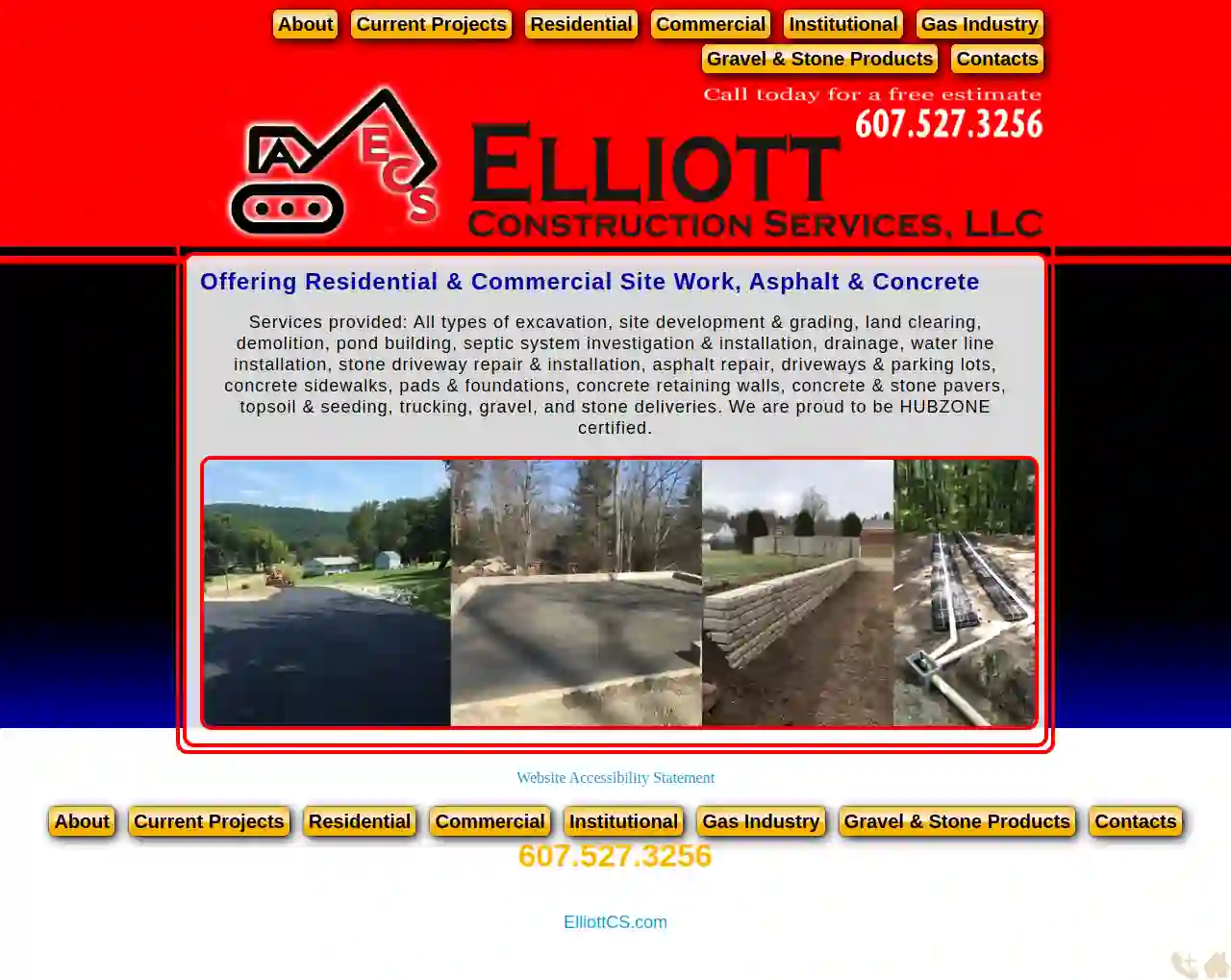
Austin Construction LLC
4.65 reviews5054 County Route 125, Campbell, 14821, USElliott Construction Services, LLC Elliott Construction Services, LLC is a HUBZONE certified company offering a wide range of services for residential, commercial, and institutional projects. We are located just minutes off of exit 41 on Interstate 86 in Campbell, NY, making us conveniently located for projects in the Southern Tier region of New York. Our team has extensive experience in all types of excavation, site development & grading, land clearing, demolition, pond building, septic system investigation & installation, drainage, water line installation, stone driveway repair & installation, asphalt repair, driveways & parking lots, concrete sidewalks, pads & foundations, concrete retaining walls, concrete & stone pavers, topsoil & seeding, trucking, gravel, and stone deliveries. We are committed to providing high-quality workmanship and exceptional customer service. Our team is dedicated to providing our clients with the highest quality services and exceeding their expectations. We are committed to safety, efficiency, and environmental responsibility in all our projects. We are proud to be HUBZONE certified, which allows us to provide competitive pricing and exceptional service to our clients.
- Services
- Why Us?
- Gallery
Get Quote
Hydro Spy LLC
38 reviewsP.O. Box 300247, Houston, 77230, USHydro Spy, LLC: Your Trusted Hydro Excavation Partner Hydro Spy, LLC is a leading provider of hydro excavation services in Houston, Texas, and across the Gulf States. We specialize in safe, fast, and cost-efficient excavation of pipelines and other underground utilities. Our team of experienced professionals utilizes cutting-edge technology to deliver exceptional results for a wide range of projects. We are committed to exceeding our clients' expectations by providing: ✔ Unmatched Expertise: With over twenty years of combined experience in hydro excavation methodologies, we have the knowledge and skills to handle any project, no matter how complex. ✔ State-of-the-Art Equipment: We invest in the latest hydro excavation equipment to ensure efficiency, safety, and precision in every job. ✔ Unwavering Commitment to Safety: Safety is our top priority. Our team is highly trained and adheres to the strictest safety protocols. ✔ Exceptional Customer Service: We are dedicated to providing our clients with the highest level of customer service and support. Hydro Spy, LLC is a proven brand with tangible solutions for virtually any excavation challenge. We serve some of the largest corporations in the world, consistently exceeding their high standards and precise demands. Our teams are energetic, innovative, and cutting-edge, setting the standards that other hydrovac contractors follow. We are always ready to serve, day or night, near or far. Contact us today to discuss your project needs.
- Services
- Why Us?
- Gallery
Get Quote
B&P Clearing
53 reviewsSan Antonio, US- Services
- Why Us?
Get Quote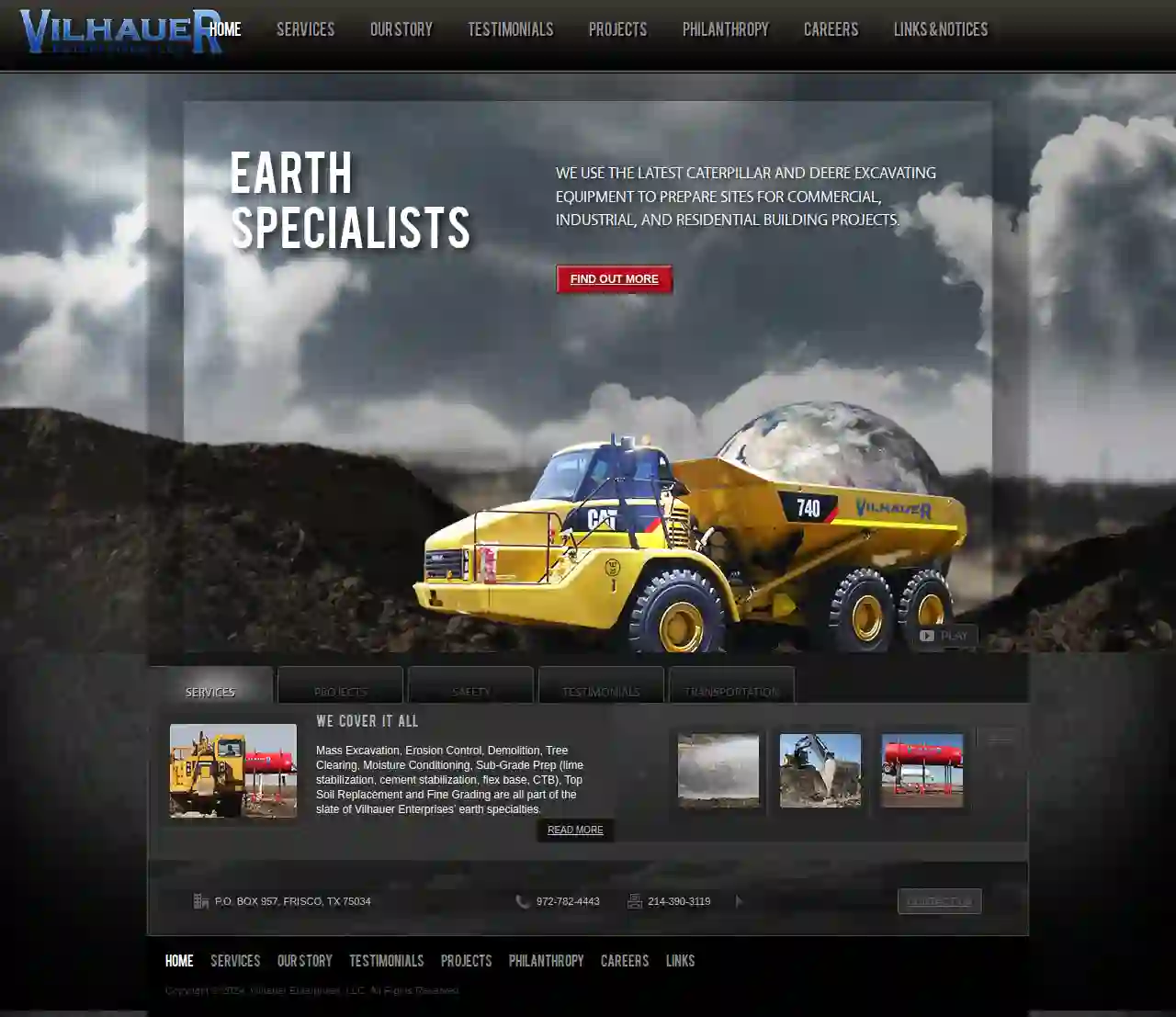
Vilhauer Enterprises
3.721 reviewsPlano, US- Services
- Why Us?
Get Quote
Over 3,943+ Excavation Contractors onboarded
Our excavation contractors operate in Grand Prairie & beyond!
ExcavationHQ has curated and vetted Top Excavation Businesses in and around Grand Prairie. Find the most trustworthy pro today.
Frequently Asked Questions About Demolition Contractors
How do I find demolition contractors near me?
What is the difference between demolition and deconstruction?
Demolition: Typically involves bringing down a structure quickly and efficiently, often using heavy machinery and potentially explosives. The primary goal is to clear the site.
Deconstruction: Focuses on carefully dismantling a building piece by piece to salvage reusable materials. It prioritizes minimizing waste and environmental impact, often involving manual labor and specialized tools.
The choice between demolition and deconstruction depends on the project's objectives, budget, and environmental considerations.
Can I do demolition myself?
What is a demolition bond?
How do I find demolition contractors near me?
What is the difference between demolition and deconstruction?
Demolition: Typically involves bringing down a structure quickly and efficiently, often using heavy machinery and potentially explosives. The primary goal is to clear the site.
Deconstruction: Focuses on carefully dismantling a building piece by piece to salvage reusable materials. It prioritizes minimizing waste and environmental impact, often involving manual labor and specialized tools.
The choice between demolition and deconstruction depends on the project's objectives, budget, and environmental considerations.